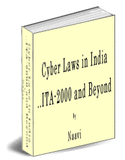Smart Card based solutions are popular in many Banking and E-Governance applications and India is getting ready to a huge investment on Smart Cards in its Citizen ID project. The use of Smart Cards is basically recommended for the higher security that it is proposed to provide for a solution.
It is however necessary to recognize that like many other IT solutions Smart Cards have a cost and unless the application justifies the cost and there are no cheaper alternative, there is no need to adopt Smart Cards for a given solution.
Typically Smart Cards are used to store information such as health record, the vehicle registration record or driver’s license record, Bank record etc. These cards are read using a “Smart Card Reader” which will be required at all access points. Additionally at the originating end, Smart Card writers are also required.
The total cost of Smart Card usage includes
a) Smart Card Cost
b) Smart Card Reader Cost.
c) Smart Card Writer Cost
d) Smart Card Implementation Cost
There are varieties of Smart Cards from 1 Kb simple storage cards to 4 MB communicating and processing cards. The reader and writer costs also vary according to the type of cards.
In a simple application the Card may cost around RS 75/- the Reader around RS 5000/- to 8000, the writer upto RS 2 lakhs and the implementation nearly RS 50 lakhs.
In the case of a Citizen ID card issued at each district head quarters, there will be a need for one writer at each of the district centers. The number of cards required will depend on the number of users (Say 30-50 Crores?) and the number of readers required will be several lakhs. Additionally the readers and writers need replacement and involve a recurring cost also.
It appears that the cost of such a project is beyond the scope of the Indian Government in the near future and any attempt made to introduce the project will die a premature death after the pilot stage.
The incurring of such costs is not also justified from security point of view since Smart Cards are prone to security risks both at the user level as well as the writing level. If Smart Card writers are to be held at every district in the Country the security risk will be present at each of these centers and such risks will be both technical and manpower based. It is also a myth to consider that Smart Cards are hacker proof.
If anything, since the Card to be manipulated may be in the hands of a forger, it is easy to apply the best available technology for hacking and also take as much time as required for hacking the smart card.
Hence if the rewards justify, Smart Cards can be hacked and will be hacked. Hence it will be easy for terrorists and those who would like to modify the demographic records of the country to hack and modify Smart Cards issued to Citizens as ID cards.
Additionally Smart Cards are prone to “Floating Information Risk” where manipulated data is never available to authorities for verification and will be floating until a major scam surfaces.
An Alternative-DVIIS
This discussion on the limitations of Smart Cards would be largely academic and un productive if a proper alternative was not available. However an easy and economical tool is in our hands and it is called DVIIS. This can serve the requirements of Citizen ID at costs such as
- Rs 10-12 for Cards
- Use of telephones at access points for information retrieval
- No special device for writing other than a Secured Web server system
If required, readers that cost less than 50 % of smart card readers can be used for additional convenience.
There will be implementation cost which again should be less than in the Smart Card System.
An intelligent risk management system makes the system more secure than the Smart Card system.
The enormous cost savings that this system would entail for the introduction of Citizen ID system will make this the ideal choice against the presently envisaged Smart Card system.
In summary therefore there is a need for E-Governance implementers to look at this alternative before finalizing any Smart Card based project.
The solution is backed by an International Patent pending in the name of an Indian Citizen.
More details can be had from Na.Vijayashankar, e-mail naavi@vsnl.com. Mobile : 98410-30123
For Structured Online Courses in Cyber laws, Visit Cyber Law College.com
